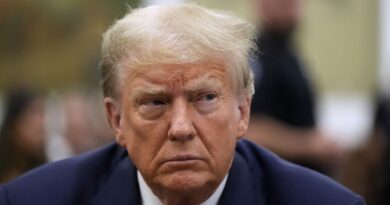From a presidential commission to Trump-nominated judges, here’s who has rebuked Trump’s voter fraud claims

Here are groups and individuals who have found no merit in Trump’s attacks on the election system:
Presidential Advisory Commission on Election Integrity
In 2016, Trump claimed with no proof that he lost the popular vote to Hillary Clinton because of millions of illegally cast ballots. In response, Trump launched the Presidential Advisory Commission on Election Integrity.
From the beginning, the 11-member commission was beset by lawsuits challenging its authority and claims by Democrats that it was stacked to promote voting restrictions favorable to Republicans.
Less than a year after the panel was created, Trump disbanded it, tweeting that a lack of cooperation from state officials prevented the panel from moving forward.
The commission never released a formal report. But member and Maine Secretary of State Matthew Dunlap (D) said that he had reviewed the commission’s materials and found that Trump’s claims of massive fraud were “false.”
Dunlap reviewed more than 8,000 documents from the group’s work, which he acquired after a legal fight. “I have reviewed the Commission documents made available to me and they do not contain evidence of widespread voter fraud,” Dunlap wrote to Kobach and Pence in August 2018.
Sections in the documents meant to provide evidence of voter fraud were “glaringly empty,” Dunlap said.
Kobach, at the time, refuted Dunlap’s letter, saying that there have been more than 1,000 convictions for voter fraud since 2000. “It appears that Secretary Dunlap is willfully blind to the voter fraud in front of his nose,” a spokesperson for Kobach told the Associated Press.
There have been about 1,300 documented instances of voter fraud since the 1980s, according to a database maintained by the conservative Heritage Foundation.
In response to Kobach, Dunlap said the instances did not amount to the systemic problem Trump and his allies painted them to be.
More than 90 judges
In 2020, Trump once again falsely claimed that he lost the election because of voter fraud. His campaign and the Republican Party filed dozens of legal claims challenging the results of the vote.
Nearly all have been rejected by the courts.
About 90 judges, including Trump appointees, ruled against Trump or allies, according to a Post review. Thirty-eight of those judges were appointed by Republicans.
“Without compelling evidence of massive fraud, not even alleged here, we can hardly grant such lopsided relief,” Trump appointee and U.S. Circuit Court Judge Stephanos Bibas ruled in Pennsylvania after Trump’s campaign argued for millions of votes to be tossed.
Yet, Trump has incorrectly said the cases were unfairly thrown out not because of their lack of merit but because of standing, a legal requirement that a person must prove they have been harmed.
“This is a great and disgraceful miscarriage of justice,” Trump tweeted after the Supreme Court threw out a complaint filed by Texas Attorney General Ken Paxton attacking four other states won by President-elect Joe Biden. “The people of the United States were cheated, and our Country disgraced. Never even given our day in Court!”
In fact, Trump has filed dozens of lawsuits, giving him several chances at a day in court.
Other Republicans
Many Republicans, including those working within Trump’s government, have said the 2020 election was secure. Since Election Day, state officials in six key swing states targeted by Trump told The Post they found a minimal number of complaints meriting investigations.
Former U.S. Cybersecurity and Infrastructure Security Agency director Chris Krebs called it “the most secure in American history,” writing in a statement that “there is no evidence that any voting system deleted or lost votes, changed votes, or was in any way compromised.”
Days later, he was fired, Trump announced on Twitter, writing that Krebs’s statement was “highly inaccurate.”
Former attorney general William P. Barr also said he had “not seen fraud on a scale that could have effected a different outcome in the election,” undercutting claims that Trump and his allies have made — without evidence — of widespread and significant voting irregularities.
Other Republicans have cast doubt on Trump’s claims of fraud, including those who ran the elections in their states.
Among the most vocal is Raffensperger.
Trump and his supporters have called him “a so-called Republican,” accusing him of allowing fraudulent votes to slip through without verifying signatures on absentee ballots. In a phone call, Trump told Raffensperger that it was “dangerous” for him if Trump did not win the state, repeating conspiracy theories about voter fraud shared in conservative circles online. A statewide audit reaffirmed the results.
Raffensperger, in an op-ed for USA Today, said his family voted for Trump and donated to his campaign but was now “being thrown under the bus by him.”
“Those who had so long been beneficiaries of the electoral process sought to tear it apart at its very foundations,” he wrote.
*** This article has been archived for your research. The original version from The Washington Post can be found here ***


